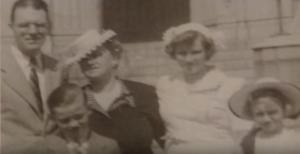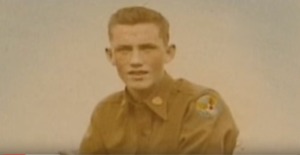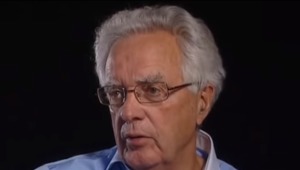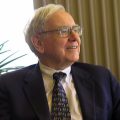Who Is Chuck Feeney? Founder of DFS, The Atlantic Philanthropies and the “Giving While Living” Movement
Have you heard about Chuck Feeney? Did you know that he is a billionaire and one of the wealthiest people in the world? Most of you probably don’t know him, even though he is one of the American billionaires? Here is why I decided to uncover his amazing biography here. Chuck is an American-Irish philanthropist, the founder of one of the biggest world charitable foundations – “The Atlantic Philanthropies“. Not only he is one of the most successful entrepreneurs in the world, but also he and his organization have changed the lives of so many people without even these people knowing him. He has always stayed out of the spotlight because glory and popularity have never been among his desires. He just wanted to help people… Under the slogan “Giving While Living”, he and his charitable foundation has donated $8 billion (2023) to different causes supporting human rights, inequality, and humanity as a whole… That’s all his wealth given away, that’s right, ALL OF IT. Chuck believed that he had to give away everything before he die, and he just did it… He spent his last days in a rented apartment in San Francisco with no assets under his name. Not only that, but “Giving While Living” has become a movement inspiring other billionaire like Warren Buffet and Bill Gates to commit about $600 billion to charity so far… Amazing, isn’t it? This is why his story is well worth telling…
Chuck Feeney (Charles Francis Feeney) was born in the city of Elizabeth, New Jersey, on April 23rd, 1931. This was the time of the Great Depression and his family struggled to make a living. His mother Madeline Feeney had always had the internal desire to help others. She worked as a volunteer nurse for the Red Cross. Chuck started earning money by doing some work for his neighbors when he was in elementary school. He teamed with a friend from his class and they shoveled snow to make a few dollars and support their families.
After he finished school, he decided to join the US Air Force, where he served as a radio operator. At that time, a soldier that went to military service had the right to receive a free university education after the service. This was how he went to study at Cornell University School of Hotel Administration. He was the first of his family ever to go to college. This was where he started to search for some business opportunities and ways to earn some money. He saw a guy selling sandwiches, he called him, bought one and told to himself: “I can do that…, It’s no difficult…” and he became a sandwich man. In his university, he met the young Harvey Dale, a law student from New York, who would later become one of his best friends.
After The University
After his graduation from Cornell, Chuck went to France to continue studying. He has always wanted to work for himself, instead of working for somebody else. He chose to find a business opportunity instead of a job. In 1956, there were around 50 US army ships on the coasts of the Mediterranean sea in France. All of the 30 000 sailors were allowed to buy tax-free liquor. This was the perfect business for him. He wasted no time and this was how he started his new business. Initially, he had no money, office, and stuff like that but the business was really good. He bought for 5 and sold for almost 15 making more than 100% profit margin after taking out all of the expenses. In November 1960, Feeney and his friend Robert Miller officially founded their company DFS – Duty-Free Shoppers Group. Then he told to himself “If it’s good for the soldiers, it’s probably good for the tourists.” and he began selling to them, too. Then he thought that as he could sell liquor, he could also sell perfumes … And he quickly expanded his range of products.
The sailors wanted not only alcohol, many of them were also searching to buy automobiles. He began receiving so many such requests, that he decided to bring those automobiles to them. This was how, in 1964, he got into the automobile business. Everything was working so great, that nobody expected the shake that was about to come. Sales were great, they received tons of cash from them, but there was no expense control. This was a big problem, especially when the chief accountant realized that the liabilities were a million and a half more than the assets of DFS. Also, they paid some really big taxes and despite the great revenue, the business wasn’t actually earning money. Feeney’s company had two options – to fail honestly or to continue out of the law. They decided to choose the first one, and this was the failure of Chuck’s first business. They closed the doors, but they moved on…
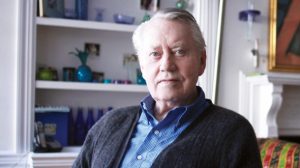
Chuck Feeney nowadays, source: giving.stanford.edu
Duty Free
But the next business opportunity was just about to come. It was in the airports’ duty-free shops… They were given on the principle of concessions. Governments would allow the highest bidder to operate such a shop for a certain period of time. A friend of Chuck got in touch with him and told him that the Honolulu Airport in Hawaii was about to organize an auction for a duty-free shop concession. He and his partners went there, bid $125 000, and won the 5 years concession. This turned out to be their next big hit. 1964 was the year when the Japanese government was trying their best to change the image of their country and make it look more open-minded. They allowed much more Japanese to travel freely abroad, and do you know what their top destination was…? Hawaii… And they were the perfect buyers for DFS’ store. A bottle of whiskey in Japan costs $35 and in the duty-free store, they could get it for around $7. You can get an idea about what a bargain that was for every Japanese. And this was a pretty big deal for DFS, too. The same was with cigarettes, they could buy them at 1/10 of the price in Japan. Feeney’s business quickly exploded. They began making $10 million a year.
The release of Boeing 747 brought a big change in business, and it was for good. It immediately expanded the flight capacity of many countries and gave a tremendous boost to the business. From making $10 million per year in sales, they began making $1 million per day. That was a huge success. They had money to bid elsewhere and this was how they opened some more duty-free shops all around the world. Soon, they became the largest company in this field. In the late 70-ties, they had around 5 000 employees and revenue of $3 billion per year. And the sweetest thing was that all of the profits were tax-free.
Chuck became a millionaire everything was great, but soon he started realizing that big wealth had some other side effects. His family had no incentive to chase anything. His kids were already bored, they didn’t have the motive to achieve anything in life, because they already had it. He made everything to teach his children to go after opportunities, and to live actively, but wealth was a big obstacle to that. Probably this was the main reason for him to start giving his fortune to other people.
This was how Feeney founded The Atlantic Philanthropies foundation in 1982. He put aside some money for each member of his family and transferred all of his remaining wealth to the foundation- all of his shares representing 38.75% of DFS worth $1.6 billion. Since its inception, Atlantic Philanthropies has donated to charitable causes more than $8 billion.
This is how one of the biggest business empires was born. If you liked the biography of Chuck Feeney, please share it with friends. All you should do is press your best social button. Thanks!
